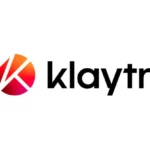The rise of cryptocurrency has been one of the most significant developments in the financial world in recent years. Cryptocurrency is a digital or virtual currency that uses cryptography to secure and verify transactions and to control the creation of new units.
Bitcoin, the first and most well-known cryptocurrency, was created in 2009 and has since been joined by thousands of other cryptocurrencies. As a result, more businesses are starting to accept cryptocurrency as payment. This article will explore the business incentives for accepting cryptocurrency as payment and the potential benefits and risks involved.

What is cryptocurrency?
Cryptocurrency is a form of digital or virtual currency that is secured by cryptography. It is decentralized, meaning that it is not controlled by any central authority such as a government or financial institution. Instead, it is based on a distributed ledger technology called a blockchain, which records all transactions and prevents fraud.
The most well-known cryptocurrency is Bitcoin, but there are thousands of other cryptocurrencies available, such as Ethereum, Litecoin, and Ripple. Cryptocurrencies can be bought, sold, and traded on cryptocurrency exchanges and can also be used to make purchases with merchants who accept them as payment.
The advantages of accepting cryptocurrency as payment
Accepting cryptocurrency as a form of payment can offer several advantages for businesses, including:
Low transaction fees
Cryptocurrency transactions typically have much lower fees compared to traditional payment methods such as credit cards or bank transfers. This is because cryptocurrencies operate on decentralized networks and do not require intermediaries such as banks or payment processors to verify and process transactions. Therefore, businesses can save money on transaction fees, which can lead to increased profit margins.
Increased security
Cryptocurrency transactions are highly secure and cannot be counterfeited or reversed, unlike traditional payment methods that are susceptible to chargebacks and fraud. Cryptocurrencies are secured by advanced cryptography and blockchain technology, which ensures that all transactions are irreversible and tamper-proof. By accepting cryptocurrency, businesses can reduce their risk of fraud and chargebacks, and can also protect their customers’ sensitive information.
Faster transactions
Cryptocurrency transactions can be processed much faster than traditional payment methods. In some cases, transactions can be completed in a matter of seconds, compared to several days for bank transfers. This can improve cash flow for businesses and also provide a better customer experience, as customers expect fast and convenient payment methods.
Access to a wider customer base
Accepting cryptocurrency can open up new markets and attract customers who prefer to use cryptocurrencies for payments. Cryptocurrencies are not tied to any particular country or currency, which means that businesses can reach a global customer base without the need for currency conversion or international fees. This can also help businesses to differentiate themselves from their competitors and gain a competitive advantage in the market.
In summary, by accepting cryptocurrency, businesses can enjoy lower transaction fees, increased security, faster transactions, and access to a wider customer base. These advantages can lead to increased revenue and profitability, as well as improved customer satisfaction and loyalty.
How accepting cryptocurrency can benefit businesses
One of the most significant benefits of accepting cryptocurrency for businesses is the lower transaction fees. Traditional payment methods such as credit cards or bank transfers typically charge businesses high fees for every transaction, which can eat into their profit margins.
However, cryptocurrency transactions are processed on decentralized networks, which do not require intermediaries like banks or payment processors. This means that businesses can enjoy significantly lower transaction fees, allowing them to increase their profit margins.
For example, the best crypto casinos, which accept cryptocurrency payments, are able to offer lower transaction fees and better payouts to their customers, attracting more players and generating higher revenues.
Accepting cryptocurrency can also provide enhanced security for businesses. Cryptocurrency transactions are highly secure and cannot be counterfeited or reversed, unlike traditional payment methods that are susceptible to chargebacks and fraud.
This means that businesses can reduce their risk of fraud and chargebacks, and can also protect their customers’ sensitive information. Casinos are leveraging the security benefits of cryptocurrency to offer a safer and more transparent gambling experience for their customers, protecting their personal and financial data and ensuring fair play.
Cryptocurrency transactions can be processed much faster than traditional payment methods. In some cases, transactions can be completed in a matter of seconds, compared to several days for bank transfers.
This can improve cash flow for businesses and also provide a better customer experience, as customers expect fast and convenient payment methods. Casinos are taking advantage of the faster transaction speeds of cryptocurrency to offer instant deposits and withdrawals, reducing waiting times for their customers and improving their overall satisfaction.
Accepting cryptocurrency can also help businesses to reach a wider customer base. Cryptocurrencies are not tied to any particular country or currency, which means that businesses can reach a global customer base without the need for currency conversion or international fees.
This can also help businesses to differentiate themselves from their competitors and gain a competitive advantage in the market. For example, casinos are able to attract players from all over the world, regardless of their location or currency preferences, providing a seamless and inclusive gambling experience for all.
Real-world examples of businesses that accept cryptocurrency
Several well-known companies have started to accept cryptocurrency as a form of payment, including:
Microsoft – In 2014, Microsoft became one of the first major companies to accept Bitcoin as a form of payment. Customers can use Bitcoin to add funds to their Microsoft accounts and purchase apps, games, and other digital content.
Overstock – Overstock, an online retailer, started accepting Bitcoin as a form of payment in 2014. The company has since expanded its cryptocurrency payment options to include other popular cryptocurrencies such as Ethereum, Litecoin, and Dash.
Tesla – In 2021, Tesla announced that it would start accepting Bitcoin as a form of payment for its electric cars. However, the company later suspended its Bitcoin payment option due to concerns about the environmental impact of Bitcoin mining.
These companies are just a few examples of how businesses can benefit from accepting cryptocurrency as a form of payment. By embracing this new technology, they are not only providing their customers with more payment options but also positioning themselves as innovators and early adopters of a fast-growing market.
Risks and challenges of accepting cryptocurrency
While accepting cryptocurrency can offer several benefits for businesses, there are also some risks and challenges to consider, including:
Volatility of cryptocurrency prices – Cryptocurrencies are known for their high volatility, which can make it difficult for businesses to accurately price their products and services in cryptocurrency. The value of cryptocurrencies can fluctuate rapidly, and businesses that accept them as payment risk losing out on profits if the price of the cryptocurrency drops significantly.
Lack of regulatory oversight – Cryptocurrencies are not yet widely regulated, which can create uncertainty and risks for businesses that accept them as payment. The lack of regulatory oversight can make it difficult for businesses to comply with laws and regulations related to financial transactions, and they may also be vulnerable to fraudulent or illegal activities.
Technical challenges – Accepting cryptocurrency as payment requires a certain level of technical expertise and infrastructure, including setting up a digital wallet, implementing payment processing services, and ensuring the security of transactions. Businesses that are not familiar with these technical requirements may face difficulties in accepting cryptocurrency payments.
Conclusion
In summary, accepting cryptocurrency as a form of payment can offer several benefits for businesses, including lower transaction fees, enhanced security, faster transactions, and access to a wider customer base. Casinos, online retailers, and tech giants like Microsoft, Overstock, and Tesla have already embraced this new technology, positioning themselves as innovators and early adopters of a fast-growing market.
However, there are also some risks and challenges to consider, such as the volatility of cryptocurrency prices, the lack of regulatory oversight, and technical challenges. Nevertheless, by following some practical steps like setting up a digital wallet, choosing a payment processing service, and ensuring security, businesses can start accepting cryptocurrency and enjoy the benefits of this new payment method.
In conclusion, accepting cryptocurrency as payment is becoming increasingly important for businesses that want to remain competitive in today’s fast-paced and rapidly evolving digital landscape. By embracing this new technology, businesses can open up new markets, attract new customers, reduce transaction fees, and improve their profitability. It is an exciting time for businesses to be part of the cryptocurrency revolution and to leverage the potential benefits of this emerging market.








